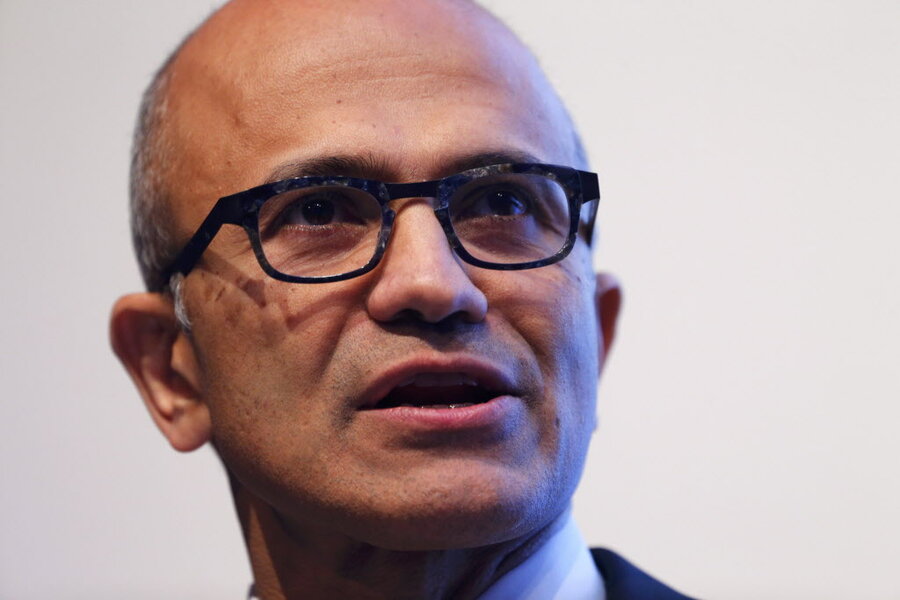Microsoft's $1 billion donation of cloud services: Philanthropy or marketing?
Loading...
Microsoft chief executive Satya Nadella announced Tuesday that the company will donate $1 billion worth of its cloud services to nonprofit organizations and university researchers over three years.
Mr. Nadella announced the plan during the World Economic Forum in Davos, Switzerland, an annual meeting of business and political leaders. The idea is to make it easier for nonprofits and researchers to gain access to the same cloud computing tools that have allowed businesses to store, easily access, and analyze large quantities of data.
“What if only wealthy societies have access to the data, intelligence, analytics and insights that come from the power of mobile and cloud computing?” Nadella wrote in a Financial Times column on the subject Tuesday.
In the column, he tied the donation and cloud computing in general to the United Nation's 17 sustainable development goals designed to tackle global problems such as poverty, hunger, health, and education by 2030.
“Data and cloud computing will play a central role in realising those goals,” wrote Nadella.
Being able to store data in the cloud for easy access and sharing is valuable for many fields, from health to education to international development. But being the No. 1 brand to offer these services is imperative for Microsoft’s long-term business success, especially as it competes for the spot with companies such as Amazon, Google, and Apple.
Microsoft’s has a long record of philanthropy, but there’s more than good will behind this move. There is also a practical effort to get more people to use the company's services.
Brad Smith, Microsoft’s president and chief legal officer, told to The New York Times that non-corporate organizations have been slower to adopt cloud services.
"It’s important that we enable the nonprofit community to make the transition to the cloud services era,” he said.
To help them do this, Microsoft is donating services that include its program Azure, which allows organizations to host their own websites and online applications in Microsoft’s data centers, and CRM Online, a program that allows nonprofits to manage their relationships with donors and partners.
The company says it wants to reach 70,000 organizations with these offerings over the next three years.
But it will need to build infrastructure in rural and underprivileged areas around the globe so that organizations there will be able to take advantage of the products. Microsoft’s business development team and its philanthropy will partner to build broadband Internet access in developing countries, the company says on its blog.
Microsoft joins other technology giants, such as Facebook and Google, in this endeavor. They are all rushing to provide free Internet access in the developing world, a mission that the companies advertise as philanthropy, but critics view as a strategy to get their brands into developing markets that are rife with future customers.
Whatever the motivations, Microsoft’s plan could help people.
The company has been giving away its traditional software for years, reports the Times. Mr. Smith, Microsoft’s president, estimates that the value of that giveaway is about $750 million per year.
With these cloud services donations, the company told the Times, it will not take a tax deduction.






